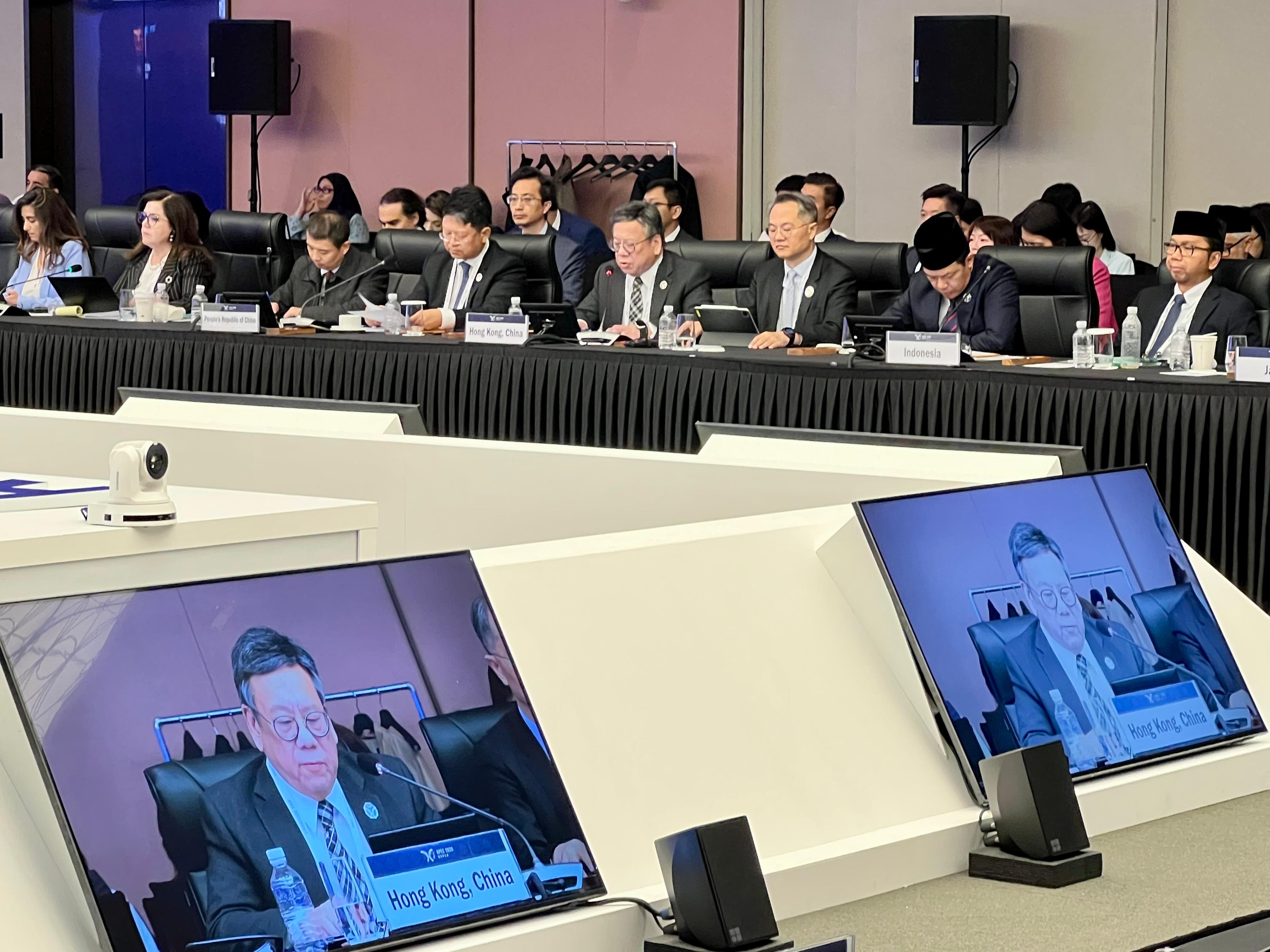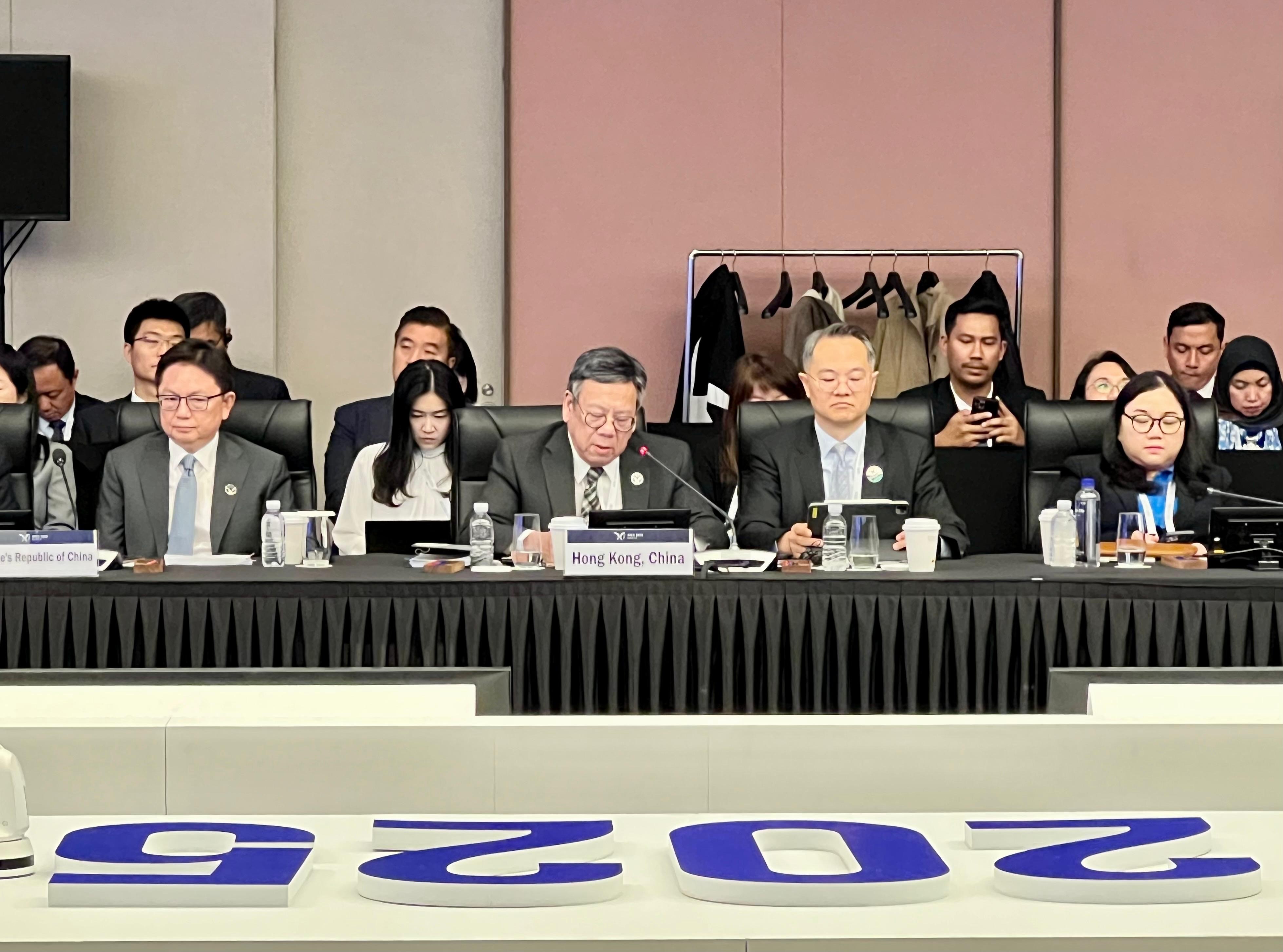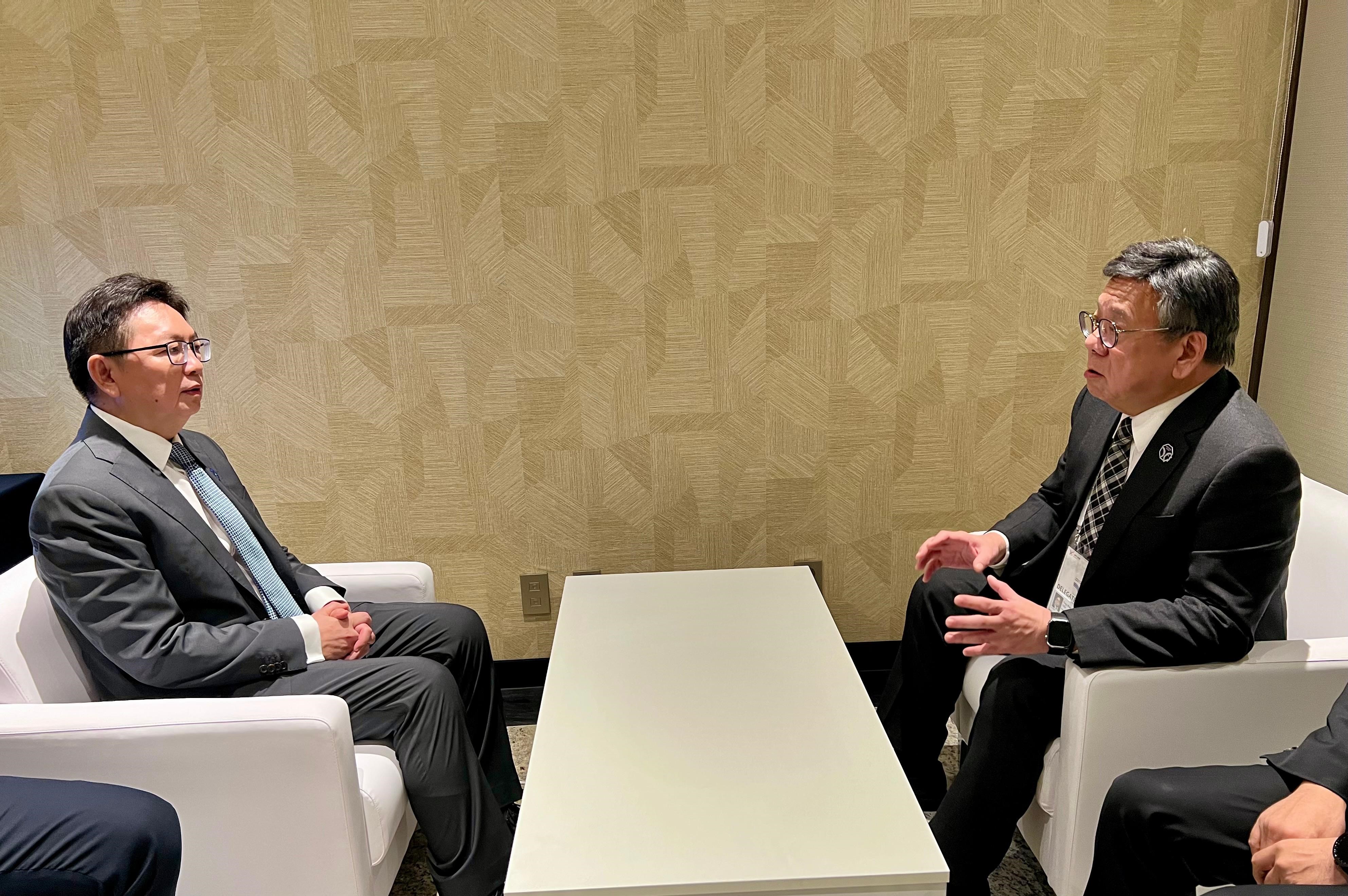
Hong Kong strongly supports deepening APEC's digital cooperation to foster economic growth and address common challenges in order to fully harness the benefits and smooth the transformation process, the city’s commerce chief said on Thursday.
Algernon Yau Ying-wah said this while delivering a speech at a plenary session themed “Innovate and Prosper” at the 36th Asia-Pacific Economic Cooperation (APEC) Ministerial Meeting in Gyeongju, South Korea.
Stressing that the rapid development of digital technologies, particularly artificial intelligence, is fundamentally changing societies at an unprecedented pace, he offered three suggestions to deepen digital cooperation.
He underscored the need to provide an enabling environment for digital innovation to achieve sustainable and inclusive growth, saying it calls for strengthening infrastructure and adopting an application-oriented approach to promote deep integration of AI across the economy.
Speaking on steps taken by Hong Kong, China, he said: “In terms of infrastructure, apart from the Cyberport's AI Supercomputing Centre established last year, we will develop an additional high-performing data facility cluster to provide advanced computing power for innovation.”
RELATED ARTICLES
- 'HK ready to boost collaboration with APEC on tech, digitalization'
- APEC members bank on HK’s ‘superconnector’ role in free trade network
- Chan urges APEC to safeguard multilateral trading system
- Lee to hold talks with APEC leaders to explore biz opportunities
To promote AI adoption, the city is attempting regulatory innovations like the AI sandbox for financial institutions, accelerating the digital transformation of micro, small and medium-sized enterprises, and upgrading its trade architecture with AI, according to the secretary for commerce and economic development.
The special administrative region government is leading by example, he said, referring to a move to form an AI Efficacy Enhancement Team to drive technological reform and modernize workflows across government agencies.
“We must ensure that the benefits of digital advancement are shared across all sectors.”
The SAR is tackling key challenges such as digital divides and job displacements that are impeding an inclusive digital transition with a people-centered approach, he said.
“Besides developing a strategic blueprint that will incorporate AI literacy into the core curriculum and enhance teacher training to ensure our next generation is future-ready, we are also reforming retraining programs and strengthening re-employment support for our current workforce,” Yau added.
Stressing the need to leverage APEC's unique role as an incubator of ideas to advance digital cooperation, he said APEC has made significant strides, over the past decade, in its digital agenda – from the APEC Internet and Digital Economy Roadmap to the APEC AI Initiative.

Yau also delivered a speech at a plenary session themed "Connect" during the APEC Ministerial Meeting, where he talked about the importance of an open, stable, transparent, inclusive, and predictable rules-based international trading environment, particularly for less developed economies, enabling them not just to survive but also to thrive on emerging opportunities.
“We should maintain the supremacy of the multilateral trading system in governing global trade, through leveraging APEC as the premier forum for multilateral engagement.”
He said APEC, as an incubator of innovative ideas, has a unique role to play in fostering regional dialogue, contributing constructively to the ongoing reform process of the World Trade Organization and facilitating international cooperation.

On the sidelines of the meeting, Yau met with the Vice Minister and Deputy China International Trade Representative of the Ministry of Commerce Ling Ji, Deputy Minister for Trade of Korea, Park Jong-won, Minister of Foreign Trade and Tourism of Peru Teresa Stella Mera Gómez, Minister for Trade and Investment of New Zealand Todd McClay, and Minister of Trade of Indonesia Budi Santoso, to exchange views on issues of mutual concern.


